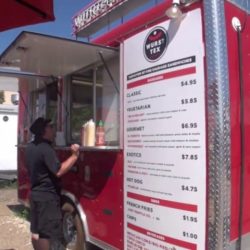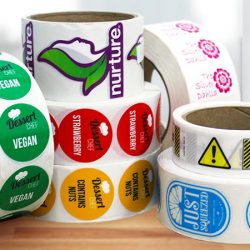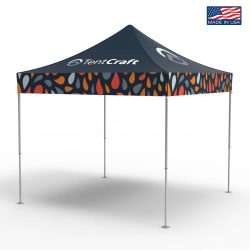Can you smell it? That exciting smell of entrepreneurship and freedom! The smell of burgers and generator fumes! And, quite possibly, the wretched stench of failure if you don’t have your ducks in a line before launching your new food truck. Starting a mobile food service business is not easy, so be prepared to struggle and hustle until you get established.
Your food may be amazing and you may have the perfect parking spot but that still doesn’t guarantee success. We’ve assembled this handy list of things to square away before, and after, day one of your new business. Read it carefully and good luck!
Food Truck Launch Checklist: GO!
Get Your Money Right
It’s time to understand your funding and financial situation. Most food trucks are open and serving for 3-12 months before ever turning a single dollar in profit. Make sure your funding and finances are in order BEFORE you open and get a plan together of exactly how you plan to make money and pay any loans you may have taken just to start your food truck.
Plan Your Niche and Menu
At the heart of all food service businesses, food trucks included, is the food itself. Plan your menu and understand the types of food you’re going to serve, who you’re going to serve it to and where you’re going to serve it. Once you have a good idea of what you want to cook, start cooking. Perfect your recipes and get your grill game nice and tight.
Have some friends and family over for a tasting party to test out your menu. Gather feedback from them and make any adjustments to your recipes NOW because adjusting recipes after you’re in business can be a complicated proposition.
Find The Perfect Food Truck FOR YOU
Whether you plan to buy or build your food truck, acquiring the CORRECT truck for your new business is absolutely crucial. Make sure your truck has what you need to store, prepare and cook your menu items. Consider your energy usage, waste water storage, gas mileage, maintenance costs and purchase budget. You’ll also need to put a considerable amount of time and effort into ensuring that your truck will meet or exceed local health department inspection guidelines.
Such guidelines can be had at your town hall or county clerk’s office. Get them. Read them. Know them well because if you buy a truck and fail your inspection, you may be in for a big bump in the road.
Now that you own the perfect food truck, wrap it with some graphics and don’t forget your menu and any other visual elements that will make your truck stand out. Wrapping and decorating your truck is a good opportunity to harness the visual presence of a large truck, so think BIG and get help from your local designer or vehicle wrap specialist to put together a truck presentation that fits your truck just right.
Create Your Business Name & Brand
Next, you’ll want to get to fun stuff. Sort of. It’s time to create your business name and begin to mold the face of your business. This can be an enjoyable or frustrating process, so take your time and get it right. Chances are, you already have an idea of what to name your business/truck so kick it around with some friends and brainstorm some ideas to make it perfect.
See our post on How to Brand Your Food Truck Like A Pro for more details.
Get Legit
Head to the city or county courthouse and get registered as a business. You’ll want to make sure you have certain documentation in order before you do this, so you may pick up a new business registration information packet before you actually show up to register. Depending on where you live, you’ll need your personal ID credentials, a bank account, some tax information and other various bits of official documentation that will link you to the new business.
Required documentation varies from state to state, so check with your county clerk and they can tell you everything you need to know. Along with registering your business, you’ll need all required permits and safety/ health inspections.
Get A Commissary Kitchen Lined Up
This can be a complicated situation to resolve. Having a commissary kitchen is a MUST. A commissary kitchen is a commercial grade kitchen that has been inspected by the local health department. You CANNOT use your home kitchen to prep or cook food for sale on your food truck. Don’t even try it. If you get caught doing such a thing, the health department WILL shut you down instantly. You will likely need to declare your commissary kitchen as part of your permit application and the local food truck gestapo WILL check on it. So get it dialed in and your permit process will be smooth(er) sailing.
Luckily, a commissary kitchen is not usually a hard thing to come by. Some towns have a designated commercial kitchen for rent. You’ll need to rent the space for an appropriate amount of time every day to prep your ingredients. Some prep work can be done on the truck but that’s not usually ideal as space is limited and the waste produced by prepping is more than what will reasonably fit on your truck. Which brings us to our next point…
Food Truck Operating Tips
Follow the Signs
Having a food truck in a crowded place can be a chaotic endeavor. Your menu may be delicious but in a crowded venue, your potential customers may be lost in the sea of activity. Get some BIG, CLEAR signs in appropriate places around your truck to quickly convey what your truck serves and why customers are going to love it. We’d also recommend getting those signs as high in the air as possible. See local signage statutes or ask your event/vendor coordinator contact about signage limits and regulations.
Leave with What You Bring
When you park and open up shop, it’s generally understood that you must truck out, that which you truck in. Some spaces will allow use of a dumpster for waste or even a drainage system for waste water disposal. These features vary from place to place so make sure you are ready to pack and store EVERYTHING you arrive with when you leave, including garbage. This also includes all of your prepped ingredients which need to be stored in temperature appropriate environments and transported safely without spilling, splashing, falling or otherwise compromising the cleanliness of the food.
Consider the Small Things
Most food truck owners get wrapped in the food or the business end of owning and operating a food truck, they often overlook the little details that come along with serving food to the general public in a portable format. Did you remember to buy and appropriately transport utensils, serving vessels, trays, napkins, cups and anything else that you will need to safely get your food from the truck into the hands of your customers? Have you thought about the customer experience of eating your menu items while standing or walking around a crowded event? A little bit of planning can go a long way here, so think carefully about what you’ll need to safely serve your food and and provide an enjoyable eating experience for your customers with minimal mess and waste.






